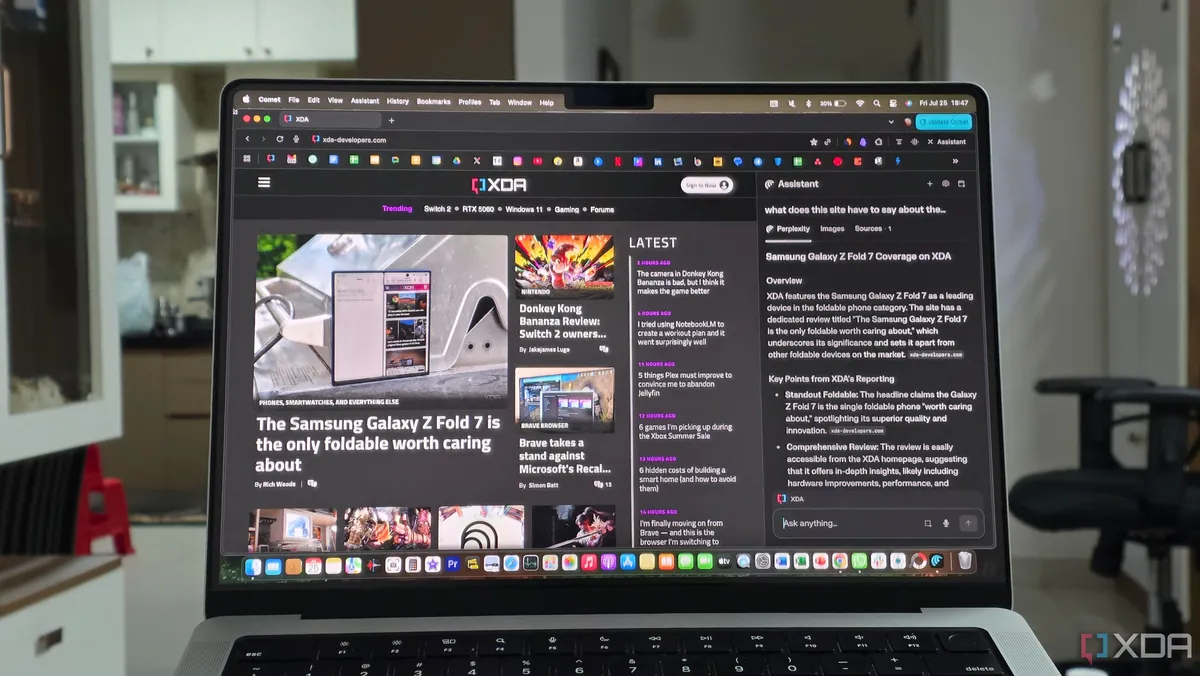
As a tech enthusiast, I thrive on experimenting with new software. Whenever a renowned company releases a new app or program, I'm typically among the first to sign up for a beta version or seek an early invitation to test it. Recently, when Perplexity, an innovative AI company, launched its new web browser named Comet, I couldn't resist. I eagerly signed up for an invitation, and even though I initially didn't receive one, a generous friend who was granted access shared it with me. After installing Comet and setting it up with my Google account, I was immediately impressed by the onboarding process—it was both simple and aesthetically pleasing.
However, my experience took a turn when I decided to switch from my go-to browser, Google Chrome, to Comet for my daily internet browsing. After using the browser for an extended period, I realized that I have a preference for a simple, no-frills browsing experience. Although I have experimented with several other browsers like Arc and Brave, I always found myself returning to Chrome. While I appreciate additional features, I don't view them as essential to the core browsing experience, which led me to conclude that Comet may not be the right fit for me.
It's important to note that my initial impression of Comet wasn't entirely negative. In fact, I discovered several handy features that enhanced my experience. One standout aspect is the integration of Perplexity's AI assistant, which resides in the sidebar at all times. This assistant can help answer questions, summarize articles, find specific information from webpages, and even conduct deep research on various topics. I found this feature particularly useful for summarizing YouTube videos and generating shopping lists for recipes I was exploring.
Another advantage is that Comet replaces Chrome's default search engine with Perplexity, providing detailed answers to queries along with relevant sources. Given that Perplexity is recognized as one of the more reliable AI engines, I had no complaints regarding the search functionality. Additionally, the ability to read information from open tabs for product comparisons and questions proved to be a valuable tool. Comet also includes a built-in ad-blocker and a privacy mode that limits cloud interactions, which are thoughtful enhancements to the browsing experience.
Despite these impressive features, I can't help but question the necessity of a new browser for functionalities that are already available through various AI chatbots. Tools like ChatGPT, Grok, Claude, Gemini, and even Perplexity itself can perform similar tasks. The primary difference lies in the manual effort required to paste links into those chatbots. While this does introduce some friction, it wasn't enough to persuade me to abandon my longtime browser. Moreover, features like email summarization and reply drafting are also offered by Google's Gemini AI, which integrates seamlessly with Google's ecosystem.
Currently, Comet is available on an invite-only basis or for users subscribed to Perplexity's Max-tier plan, which costs a hefty $200 per month. While a free version is anticipated, I suspect that it will lack some essential features, pushing users towards the premium tiers. At that point, it might be more practical to use any other free browser while subscribing to a premium AI assistant or even self-hosting a large language model (LLM) to keep costs down.
Beyond the financial aspects, I found Comet to be overly cluttered and clunky for my liking. I prefer a minimalistic and functional browser, and while Comet's design elements are visually appealing, they do not contribute to a streamlined experience. The additional AI features also tend to consume more RAM, which is not ideal for efficient browsing.
In the world of technology, new browsers often gain initial acclaim for their unique aesthetics or feature sets, but that excitement tends to fade over time. I believe Comet falls into this category. Although I appreciate how the browser integrates an AI assistant for tasks like email summarization and data gathering from open tabs, many of these features are not unique. Moreover, the requirement to grant Perplexity access to personal data raises potential privacy concerns.
In conclusion, while Comet may be one of the most attractive browsers released in recent years, it ultimately may not be the best choice for those who prioritize functionality and simplicity in their browsing experience.